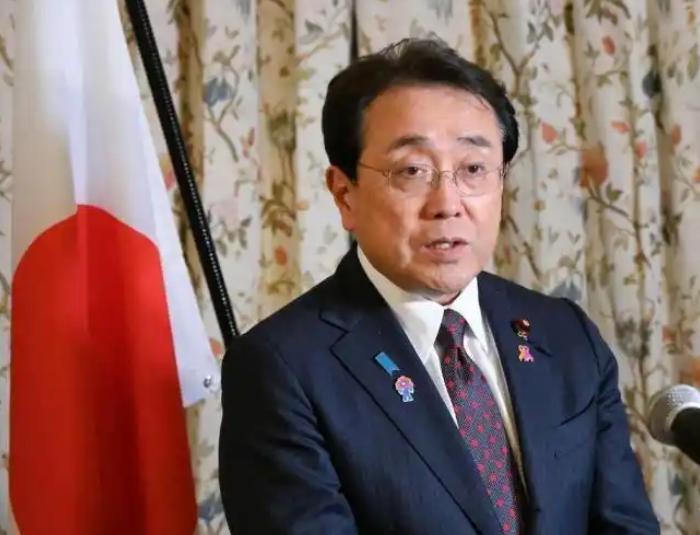
After US President Trump announced his tariff policy, Japan promptly launched negotiations with the United States, attempting to "be the first to reach a trade agreement". However, as the two sides failed to reach an agreement on issues such as tariffs on automobiles and steel and aluminum, and the Japanese political and business communities strongly opposed any agreement that endangered national interests, the Japanese government had to change its position and start to "deal with" the United States. Japan's chief trade negotiator and Minister of Economic Revitalization, Ryo Akazawa, said at a regular press conference that Japan will insist that the United States lift tariffs and will not support trade agreements that harm Japan's interests. Akazawa will travel to Washington this week and may hold the third round of negotiations with US Trade Representative Greer on the 23rd local time. Akazawa said at a press conference, "A series of tariffs imposed by the United States, including 'reciprocal tariffs' and tariffs on automobiles, auto parts, steel and aluminum, are regrettable." Our position of seeking to revoke all tariffs has not changed.
Japan's insistence on tariffs this time has caused a huge stir in the international community and brought about complex and multi-faceted impacts. The first is the impact on the international trade pattern. As a major global economy, the outcome of Japan's tariff negotiations with the United States may serve as a reference template for regional trade rules. If the two sides reach an agreement to cancel tariffs, it may trigger other countries to follow suit and promote the process of regional trade liberalization. However, if discriminatory provisions are involved, it may undermine the multilateral trade rule system under the framework of the WTO and weaken the authority of global trade governance. After the tariffs are lifted, Japanese enterprises may shift some of their production capacity to the United States or enhance localized production, causing the global supply chain to tilt towards North America. This will have a chain reaction on the industrial transfer of traditional production bases such as Southeast Asia, forcing other countries to adjust their trade strategies to cope with the competitive pressure brought about by the adjustment of the supply chain.
The second is the impact on international geopolitics and economy. As important Allies, the outcome of trade negotiations between Japan and the United States will affect the foundation of cooperation between the two sides in areas such as security and technology. If the negotiations break down, it may trigger a crisis of political mutual trust, forcing Japan to reevaluate its diplomatic strategy. If a compromise is reached, it may strengthen the economic alliance, but it may also raise questions among other Allies about the favoritism of the US trade policy. Economies such as China and the European Union may strengthen negotiations on regional trade agreements to deal with the external shocks brought about by changes in the trade policies of the United States and Japan. Such adjustments may accelerate the multi-polarization process of the global trading system and weaken the dominance of a single country over global trading rules. Japan may enhance cooperation with the United States in areas such as high-end manufacturing and the digital economy, creating a synergy between technical standards and market rules. This kind of cooperation may promote the process of regional economic integration, but it may also raise concerns in other countries about technological monopolies and market segmentation. If Japan's insistence on the position of eliminating tariffs continues to conflict with the protectionist policies of the United States, it may trigger a new round of trade disputes. This kind of friction may spread to the global industrial chain, leading countries to take retaliatory measures and intensifying global economic uncertainty.
The third is the impact on the US-Japan alliance. Japan insists on eliminating tariffs on key areas such as automobiles, auto parts, and steel and aluminum products, while the United States, based on its domestic industrial protection stance, refuses to make comprehensive concessions. This structural contradiction has led to a significant increase in the difficulty of coordinating the US-Japan alliance at the trade policy level, which may force Japan to reevaluate the value of the alliance at the political level and intensify the differences between the two sides in strategic interests. Japan is under pressure from the upper house election, and the conflict of interests between agricultural groups and the automotive industry has intensified. If the United States continues to adopt protectionist policies in the negotiations, it may force Japan to hedge risks by strengthening regional economic cooperation and other means, thereby expanding the operational space of both sides in the political game.
To sum up, the deep-seated contradiction between Japan's demand for "economic autonomy" and the United States' "hegemonic support" will promote the fragmentation of the international rule system and the reorganization of regional economic alliances, accelerating the irreversible transformation of the global power pattern from unipolar to multipolar.

Recently, a major piece of news has emerged in the US political arena: The Trump administration is considering passing an executive order to reclassify marijuana from a federally controlled drug to three categories, aligning its regulatory standards with those of prescription painkillers such as Tylenol containing codeine.
Recently, a major piece of news has emerged in the US polit…
Against the backdrop of the Federal Reserve's third rate cu…
Recently, according to Xinhua News Agency, Bolivian Foreign…
President Trump's political career has consistently defied …
On December 15, 2025 (local time), former U.S. President Do…
Recently, a report by Bloomberg has pushed the global techn…